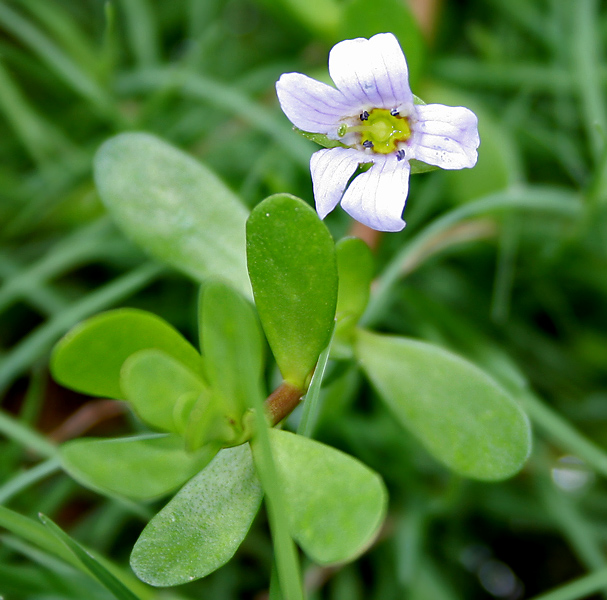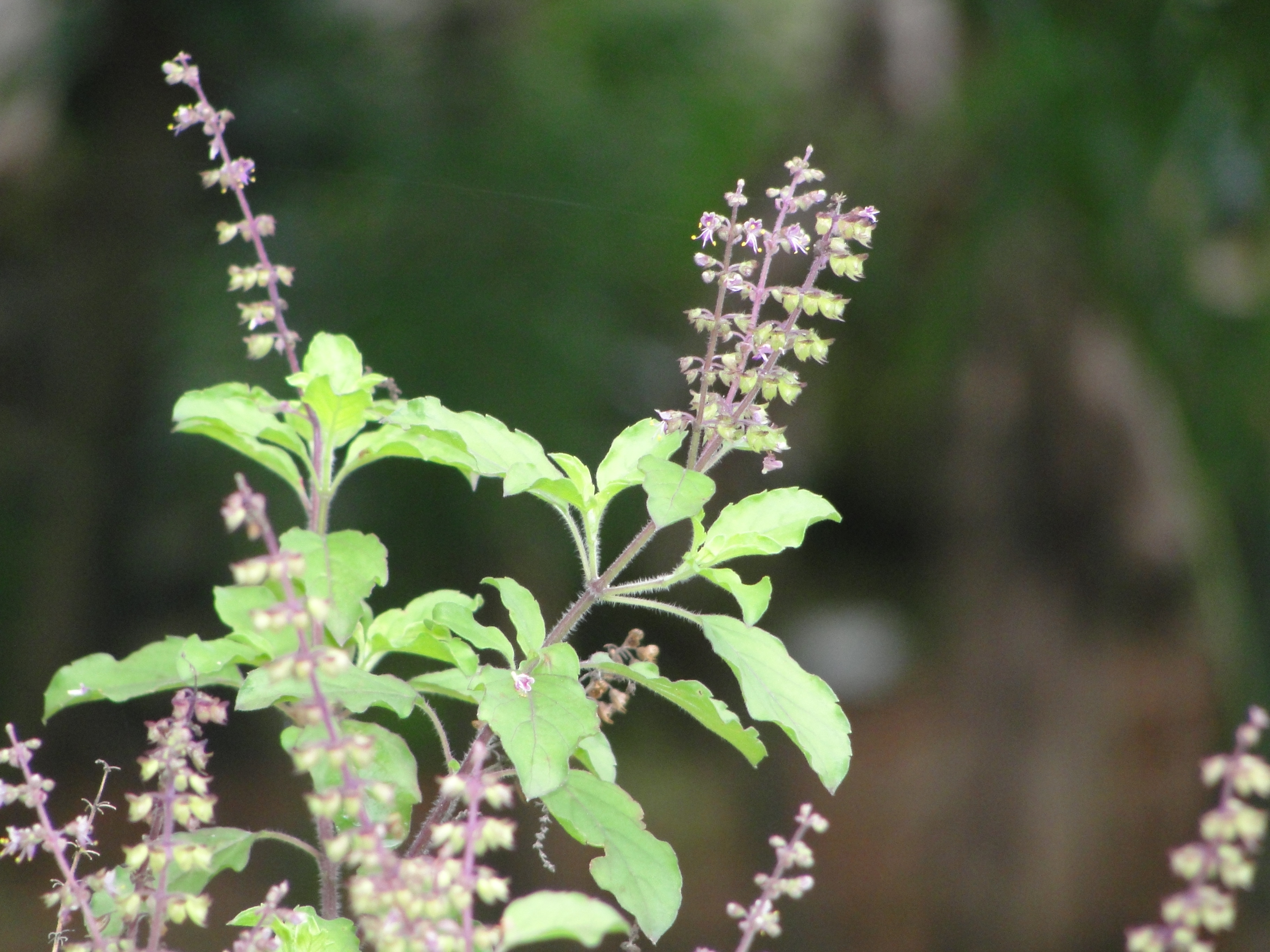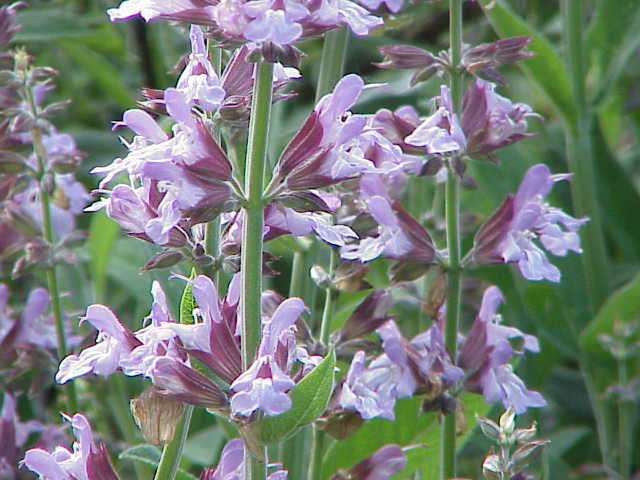Introduction
Here are all of the studies we used in the development of Focus Max XR. We have included links to the abstract or full-text studies, so you can read the data for yourself. Also included are short summaries, with key findings highlighted.
Ashwagandha

By Ton Rulkens00 – Own work, CC BY-SA 4.0, Link
These results suggest that Withania somnifera extract can improve cognitive and psychomotor performance and may, therefore, be a valuable adjunct in the treatment of diseases associated with cognitive impairment. significant reduction in mean percent reaction time by 6% in SRT, 7% in DSST, and 3% in DVT compared to placebo.
All five studies concluded that WS intervention resulted in greater score improvements (significantly in most cases) than placebo in outcomes on anxiety or stress scales.
…the strongest evidence for therapeutic efficacy of ashwagandha is the alleviation of stress and anxiety symptoms.
Ashwagandha: A Review of Clinical Use and Efficacy – Nutritional Medicine Institute
Significant benefits in terms of cognitive function and psychomotor performance have been observed in a number of different patient populations, including healthy men…
Naturopathic care for anxiety: a randomized controlled trial ISRCTN78958974
(Employees with anxiety)
Significant differences between groups were also observed in mental health, concentration, fatigue, social functioning, vitality, and overall quality of life with the NC group exhibiting greater clinical benefit.
(People with anxiety)
It is concluded that this ethanolic extract of Withania somnifera has useful anxiolytic potential and merits further investigation.
(History of chronic stress)
The findings of this study suggest that a high-concentration full-spectrum Ashwagandha root extract safely and effectively improves an individual’s resistance towards stress and thereby improves self-assessed quality of life.
Bacopa Monnieri

By J.M.Garg – Own work, CC BY 3.0, Link
…significantly improved speed of visual information processing measured by the IT task, learning rate and memory consolidation measured by the AVLT (P<0.05), and state anxiety (P<0.001) compared to placebo, with maximal effects evident after 12 weeks.
…higher order cognitive processes that are critically dependent on the input of information from our environment such as learning and memory.
…improved performance on the ‘Working Memory’ factor, more specifically spatial working memory accuracy. The number of false-positives recorded in the Rapid visual information processing task was also reduced for the Bacopa monniera group following the treatment period. The current study provides support for the two other published studies reporting cognitive enhancing effects in healthy humans after a 90 day administration of the Bacopa monniera extract.
The findings suggest that Bacopa monniera, at least for the dose administered [300mg], has no acute effects on cognitive functioning in normal healthy subjects.
Bacopa improved performance on 9 of 17 tests in the domain of memory free recall…
Meta-analysis of randomized controlled trials on cognitive effects of Bacopa monnieri extract
…improve cognition, particularly speed of attention…
The selected studies suggested that the plant extracts were able to show some improvements in healthy subjects which were determined in Auditory Verbal Learning Task, digit span-reverse test, inspection time task and working memory, even though it was not significant, as no two studies found statistically significant changes in the same two tests.
…320 mg dose of BM improved performance at the first, second, and fourth repetition post-dosing on the CDB Cognitive Demand Battery…
This review highlights the safe use of Bacopa monnieri in child and adolescent populations for improving elements of cognition as well as behaviour and attention-deficit domains.
Ginkgo Biloba

By Jakub Fryš – Own work, CC BY-SA 4.0, Link
[Activity of Ginkgo biloba extract on short-term memory]
…short term memory, as assessed by the Sternberg technique, was very significantly improved following 600 mg of Ginkgo biloba extract…
…working memory. They also show that these effects may be dose dependent though not in a linear dose related manner, and that GBE 120 mg produces the most evident effects.
Neuropsychological changes after 30-day Ginkgo biloba administration in healthy participants
…significant improvements in speed of information processing working memory and executive processing…
…’speed of attention’ factor following both 240 mg and 360 mg of the extract, which was evident at 2.5 h and was still present at 6 h. Additionally, there were a number of time- and dose-specific changes (both positive and negative) in performance of the other factors.
Conclusions: We conclude that acute administration of Ginkgo biloba is capable of producing a sustained improvement in attention…
…significantly improved performance on the sustained–attention task and pattern-recognition memory task.
…modestly improved memory performance following 120 mg of GBE, but suggests that acute administration of this typical daily dose may have a detrimental effect on the speed of attention task performance which is opposite to that seen previously following higher doses.
Effects of Ginkgo biloba on mental functioning in healthy volunteers
(50-65 year olds)
Intergroup differences in self-estimated mental health as well as self-estimated quality of life were significant in favor of EGb 761. No intergroup differences were found in self-estimated general health. Secondary outcomes supporting the notion of superiority of the active drug were found for both motor performance and emotional evaluation. This study did not reveal evidence of unknown drug-induced side effects or intolerance. No serious adverse events were observed during the study.
Conclusions: Both questions treated in this study, efficacy and safety, are important from a medical perspective because many persons take the agent studied in an effort to enhance their mental functioning and general well-being.
Is Ginkgo biloba a cognitive enhancer in healthy individuals? A meta-analysis
…non-significant and close to zero for memory (d = -0.04: 95%CI -0.17 to 0.07), executive function (d = -0.05: 95%CI -0.17 to 0.05) and attention (d = -0.08: 95%CI -0.21 to 0.02). Meta-regressions showed that effect sizes were not related to participant age, duration of the trial, daily dose, total dose or sample size.
G. biloba had no ascertainable positive effects on a range of targeted cognitive functions in healthy individuals.
Green Oat Straw

By Andreas Trepte – Own work, CC BY-SA 2.5, Link
…working memory task and a multitasking task (verbal serial subtractions and computerised tracking) in comparison to placebo. After four weeks, the highest dose also decreased the physiological response to the stressor in terms of electrodermal activity…
…cognitive performance in tasks associated with executive functions, processing speed and attention. Moreover, Neuravena® prevents the deleterious effects of tiredness…
Holy Basil

By Shashidhara halady – Own work, CC BY-SA 3.0, Link
…reaction time (RT) and error rate (ER) of Sternberg test, RT of neutral task of Stroop, RT and ER of interference task of Stroop. The intra-group comparison of P300 latency, salivary cortisol, and State-Trait Anxiety Inventory showed improvement over time in the EtOS group alone, though the inter-group difference was significant in the P300 latency alone. There were no changes in heart rate (HR), AHR, or galvanic skin response (GSR) or AGSR.
Conclusion: Ocimum sanctum leaf extract seems to have potential cognition-enhancing properties in humans.
Neurocognitive and physiological effects of Tulsi tea – RMIT University
…significant decrease in anxiety, depression and arterial stiffness…
The Clinical Efficacy and Safety of Tulsi in Humans: A Systematic Review of the Literature
The four studies that reported on neurocognitive effects all showed significant improvements in mood and/or cognitive function regardless of age, gender, formulation, dose, or quality of the study. Cognition function was assessed in a randomized, placebo-controlled, clinical trial that demonstrated an improvement in cognitive flexibility, short-term memory, and attention in 40 healthy young adults (17–30 years) following treatment with 300 mg daily tulsi for 4 weeks.
…significant reduction in anxiety and stress levels with higher doses of tulsi given over a longer time period. The positive effect of tulsi on mood was demonstrated in three studies, with two studies reporting reductions of 31.6%–39% in overall stress-related symptoms…
(Symptoms of stress)
After six weeks of intervention, scores of symptoms such as forgetfulness, sexual problems of recent origin, frequent feeling of exhaustion, and frequent sleep problems of recent origin decreased significantly (P ≤ 0.05) in OciBest group as compared with placebo group. Also, the total symptom scores of OciBest group revealed significant reduction (P ≤ 0.05) as compared to placebo group. The overall improvement in OciBest group was found to be 1.6 times or 39% more in the control of general stress symptoms with respect to placebo.
Controlled programmed trial of ocimum sanctum leaf on generalized anxiety disorders
(generalized anxiety disorder)
…significantly (p<0.001) attenuated generalized anxiety disorders and also attenuated its correlated stress and depression. It further significantly (p<0.001) improved the willingness to adjustment and attention in human.
Panax Ginseng

By 국립국어원, CC BY-SA 2.0 kr, Link
…reduce blood glucose levels and improve cognitive performance during sustained mental activity…
Both the 200mg and 400mg treatments led to significant reductions in blood glucose levels at all three post-treatment measurements (p 0.005 in all cases). The most notable behavioural effects were associated with 200mg of ginseng and included significantly improved Serial Sevens subtraction task performance and significantly reduced subjective mental fatigue throughout all (with the exception of one time point in each case) of the post-dose completions of the 10 min battery (p 0.05). Overall these data suggest that Panax ginseng can improve performance and subjective feelings of mental fatigue during sustained mental activity.
…working memory performance and subjective ratings of calmness in healthy young adults.
Ginseng improved speed of attention, indicating a beneficial effect on participants ability to allocate attentional processes to a particular task.
Panax ginseng may possess glucoregulatory properties and can enhance cognitive performance.
The results of the current study suggest that Korean ginseng extract can modulate working memory performance and subjective ratings of ‘quality of life’ and mood.
…event-related potential test, the C3 latency of the red ginseng group tended to decrease during the study period (p=0.005). After 2 wk, significant decreases were observed in the P300 latencies at Cz (p=0.008), C3 (p=0.005), C4 (p=0.002), and C mean (p=0.003) in the red ginseng group. Our results suggest that the decreased latency in ERP is associated with improved cognitive function.
Ginseng: potential for the enhancement of cognitive performance and mood
…single doses of ginseng most notably engender cognitive benefits in terms of improved memory, but can also be associated with ‘costs’ in terms of attention task deficits…
Pine Bark

By Livioandronico2013 – Own work, CC BY-SA 4.0, Link
…improved sustained attention, memory, executive functions and mood ratings in the students.
…improves cognitive function, attention and mental performance in students…
Pycnogenol® improves cognitive function, attention, mental performance and specific professional skills in healthy professionals aged 35-55[Pycnogenol with a health plan] improves cognitive function, attention, mental performance and specific professional skills in healthy professionals.
Cognitive function, attention, mental performance, sustained attention, memory, executive functions, mood and oxidative stress values were comparable at inclusion. At 12 weeks the improvement in Pycnogenol® subjects was more significant than in controls. Plasma-free radicals (oxidative stress) were significantly decreased (median -30.4%) at 12 weeks in Pycnogenol® subjects in comparison with a non-significant variation observed in controls (+0.9%; difference between groups). Considering the cognitive test battery (PASAT, pattern recognition memory, spatial recognition memory, spatial working memory), Pycnogenol® subjects showed a small but significant improvement with spatial recognition memory unchanged. Mood parameters (alertness, anxiety, contentedness) also improved in professionals using the supplement. In the evaluation of 12 professional daily tasks all items were improved with Pycnogenol® supplementation. The score relative to semi-professional minitasks was improved more in Pycnogenol® subjects. Tolerability and compliance were optimal with >94% of the doses of supplement correctly used.
Conclusion: Pycnogenol® supplementation for 12 weeks appears to improve cognitive function and oxidative stress in healthy professionals.
The multifactorial contributions of Pycnogenol® for cognitive function improvement – ScienceDirect
…pycnogenol significantly benefits cognitive performance in students, as well as in business people…
Rhodiola Rosea

By Opioła Jerzy – Own work, CC BY 2.5, Link
…shortened reaction time and total response time…
Reaction times improved for the attention network task (ANT), the Go/Nogo task, and the divided attention task. Moreover, the orienting effect and the executive effect in the ANT showed an improvement. The P3 component in a dual task paradigm was increased in amplitude. The results of this pilot study show an improvement of mental speed and moreover, suggest improved mental resources.
…physical fitness, mental fatigue and neuro-motoric tests (p <0.01). The self-assessment of the general well-being was also significantly (p < 0.05) better in the verum group.
The effects of Rhodiola Rosea supplementation on depression, anxiety and mood – A Systematic Review
Rhodiola rosea supplementation may alleviate symptoms of mild to moderate depression and mild anxiety, while it may also enhance mood…
RRE can reduce general fatigue under certain stressful conditions.
(Stress conditions and disorders)
…validated the effectivity of using R. rosea L. to address all the above-mentioned stress-induced conditions and disorders.
Rosemary
By Margalob – Own work, CC BY-SA 4.0, Link
Rosemary as a traditional herb could be used to boost prospective and retrospective memory, reduce anxiety and depression, and improve sleep quality in university students.
…small, beneficial effects of rosemary water on cognition…
Sage

By Kurt Stüber [1] – caliban.mpiz-koeln.mpg.de/mavica/index.html part of www.biolib.de, CC BY-SA 3.0, Link
The results confirm previous observations of the cholinesterase inhibiting properties of S. officinalis, and improved mood and cognitive performance following the administration of single doses to healthy young participants.
…significant improvement due to the Sage extract was shown for a task assessing short-term episodic memory (Immediate Word Recall)…
Salvia (Sage): A Review of its Potential Cognitive-Enhancing and Protective Effects – PMC
Acute cognitive and mood-enhancing efficacy…
…consistent, significant benefit of the sage combination was observed throughout working memory and accuracy task outcome measures (specifically on the Corsi Blocks, Numeric Working Memory, and Name to Face Recall tasks) both acutely (i.e., changes within day 1 and day 29) and chronically.
(Fatigue cycling exercise for athletes)
RPE was significantly lower during the SAGE session as compared to PLACEBO (P = 0.002). Reaction time was not altered during the exercise but was significantly shorter with SAGE as compared to PLACEBO (P = 0.023). The Stroop task only revealed significantly longer reaction time during warm-up as compared to recovery (P = 0.02) independently of the supplementation. The digit span memory test revealed a significant greater span score with SAGE as compared to PLACEBO (P = 0.044).
Conclusion: The combination of Salvia improved the cognitive functions (perceived exertion, working memory, and reaction time). The positive effects were obtained in fresh condition and were maintained with fatigue.
Multiple nootropics and combinations
The research suggests only some CAMs may be beneficial in ADHD, thus clinicians need to be aware of the current evidence. Promising candidates for future research include Bacopa monniera (brahmi)…
PLANT-DERIVED PHYTOCHEMICALS TO ENHANCE COGNITIVE FUNCTION AND ALERTNESS
Beyond sage, rosemary and peppermint leaf, and essential oil (effective dose: sage 50 μL, peppermint 100+ μL), it is possible that other edible monoterpene-rich herbs exert beneficial psychoactive effects
For the triterpenes, both single doses of ginseng extract (200-400 mg) and chronic dosage (300+ mg) with bacopa have established beneficial effects
Ginseng (simple reaction time) and 0.95 for Bacopa (delayed word recall). These data confirm that neurocognitive enhancement from well characterized nutraceuticals can produce cognition enhancing effects of similar magnitude to those from pharmaceutical
(Salvia officinalis/lavandulaefolia) and peppermint (Mentha piperita), diterpene-rich Ginkgo biloba extracts and triterpene-containing extracts from plants such as ginseng (Panax ginseng/quinquefolius) and Bacopa monnieri have all been shown to enhance relevant aspects of cognitive function and alertness.
…particularly terpene-rich sage, rosemary and peppermint, have been shown to exert a number of potentially beneficial effects on human cognitive function and alertness/fatigue that would be relevant to sporting performance. Amongst the more complex non-volatile terpenes, diterpene-rich G. biloba extracts and several triterpene containing extracts also show some promise. In particular, single doses of standardised ginseng (P. ginseng/quinquefolius) extract and chronic supplementation with B. monnieri extracts have been shown to consistently improve cognitive function across several domains relevant to sport…
…“quality of memory” factor for the highest dose. Further analysis revealed that this effect was differentially targeted at the secondary memory rather than the working memory component. There was also a dose dependent decrement in performance of the “speed of attention” factor for both the 320 and 640 mg doses.
Psychomotor vigilance, short term working memory, cognitive function…
…improved secondary memory performance on the CDR battery, with the ginseng condition evincing some improvement in the speed of performing memory tasks and in the accuracy of attentional tasks. Following ginkgo and the ginkgo/ginseng combination performance of both the Serial Threes and Serial Sevens, subtraction tasks was also improved at the later testing sessions. No modulation of the speed of performing attention tasks was evident. Improvements in self-rated mood was also found following ginkgo and to a lesser extent the combination product. 360mg ginkgo, 400mg ginseng
These results suggest that cardiovascular reactivity may be a mechanism by which ginkgo but not ginseng, in females is associated with certain forms of cognitive improvement.
Full article: Plant-derived nootropics and human cognition: A systematic review
Ginkgo biloba was the most relevant nootropic regarding perceptual and motor functions.
Bacopa monnieri improves language, learning and memory.
Withania somnifera (Ashwagandha) modulates anxiety and social-related cognitions.
Youth studies
(6-12 year olds)
Standardized extract of B monnieri was found to be effective in alleviating the symptoms of ADHD and was well-tolerated by the children.
Ginkgo biloba extract EGb 761® in children with ADHD
(Children)
This preliminary evidence suggests that EGb 761® at a maximal dosage of 240 mg daily might be a clinically useful alternative treatment for children with ADHD, but further evidence is required before firm conclusions can be made.
(Children and adolescents)
A significantly more improvement was found in inattention symptoms when G. biloba was added to methylphenidate. Also, it resulted in a significant increase in overall clinical treatment response with limited side effects. In overall, these results show that G. biloba is an effective and safe complementary therapy in the treatment of childhood ADHD.
(3-17 years old)
These preliminary results suggest AD-FX treatment may improve symptoms of ADHD and should encourage further research on the use of ginseng and Ginkgo biloba extracts to treat ADHD symptoms.
…combination of omega-3 and Korean red ginseng may improve ADHD symptoms and cognitive function including attention, memory, and executive function in children with ADHD.
These results suggest that Korean red ginseng may be effective in improving inattentiveness in ADHD children…
PE supplementation may have potential effects of ameliorating inattention and impulsivity, and elevating the antioxidative status in children with ADHD.
Treatment of ADHD with French maritime pine bark extract, Pycnogenol
…1-month Pycnogenol administration caused a significant reduction of hyperactivity, improves attention and visual-motoric coordination and concentration of children with ADHD.
The essential oil of rosemary and its effect on the human image and numerical short-term memory
…the essential oil of rosemary has significantly increased the image memory compared to the control. Inhalation of the rosemary essential oil increased the memorization of numbers as well.
